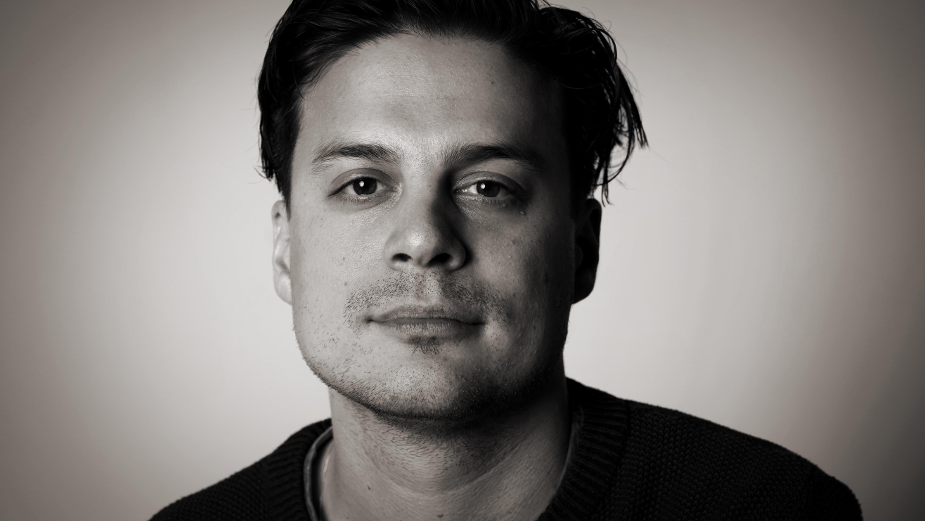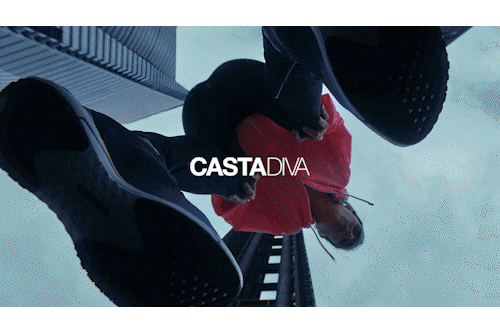
Uprising: Behind Daniel Kontur’s Obsession with Storytelling

Daniel Kontur loves every part of the filmmaking process. “I love dramaturgy and script development. I love the buzz of being on film sets,” he says. But his happy place is in the editing suite. One of his first filmmaking jobs was as an editor and although he’s now directed shows for Netflix, Viasat, ZDF, UKTV, he still maintains a special love for that part of the craft. “Editing is, to this day, my fav part of the filmmaking process. Carving the puzzle pieces is fun too of course, but being the one who assembles the puzzle pieces is the most rewarding and awesome experience there is in my opinion.”
The reason he’s a filmmaker at all though, is his love for storytelling and the history of storytelling itself. The second TV series he made for Netflix even tied these passions together. Called ‘Myths & Monsters’, he describes the six-part animated documentary series as being “about the history of storytelling which is a very passionate subject for me”.
Currently Based in Budapest, Hungary, Daniel is in part Hungarian, but his heritage is pan-European. His father’s side of the family fled Hungary to Germany due to Soviet oppression during the 1956 revolution, when the borders were opened for 48 hours and hundreds of thousand Hungarians fled towards Austria, Germany and other Western countries. So his dad grew up around Munich. Daniel’s mother is Czech and was born in Prague, but similarly her family also fled to Germany in the early ‘60s.
Born in Munich, Daniel had the pleasure of being sent to Ireland at the age of 13 to attend secondary school. He jokes: “I pretty much spent my formative years chucking down Guinness and singing IRA rebel songs. Ireland was a huge culture shock for me but I ended up absolutely loving it there and I like to think my time there and the people I met really helped to shape the person I am today.”
It’s hard to pin down exactly where he’s from, but he’s considered each place he’s lived in home. It suits his temperament, which as a kid he says was “pretty hyperactive and restless”. He didn’t grow up with shouting “action”, but he showed his creative flair at a young age. His artist uncle took Daniel to his studio a few times where he “just let me go wild”.
Then when Daniel was 12 his parents put him into a summer camp. There he was first introduced to one of the early versions of the editing software Premiere. “I was pretty much blown away by the effect when two shots are juxtaposed with each other and created something new,” he remembers.
Having chased that high through his teen years, he ended up working as a PA, camera assistant and video operator on German TV feature films for two years after which he was confident he had a solid foundation of knowledge about how films are made. Back then, Christoph Waltz was still doing German TV and Daniel was once put in charge of keeping his RV tidy for one episode of ‘Tatort’.
He decided he wanted to be a director and applied to film schools in the UK, landing himself a place on the film and TV course at UAL’s London College of Communication. He feels that film school was “both absolutely critical and totally useless at the same time. “Useless because I didn’t learn anything new on the practical side that I haven’t already learned on the film sets in Germany and absolutely critical because I met the people I would later form creative partnerships with.”
After graduating Daniel entered his editing phase, first freelancing and then working as the in-house editor at a TV company called 3DD. At the time they mostly made music and lifestyle shows and his first project there was called ‘Passion For Fashion’ (something he jokes that “I clearly lack”). He values the experience though. “It was a great pop culture school for me actually!”
Around the same time, he made his first short film out of film school called ‘Night In A Hotel’, based on a classic German short story by Siegfried Lenz. Somehow he and his friends managed to rent a whole steam train in Gloucestershire for a day for only £400. “That was awesome. Anyway, the short film got into a few festivals and even picked up a few awards which was nice.”
The producer and owner of 3DD saw the short, was impressed and asked Daniel if he wanted to direct period drama scenes for an upcoming factual TV show about art heists. Suddenly Daniel was a TV director, working on drama doc TV shows for the company. “We tried to make these dramatic scenes look as expensive and legit as possible of course,” he says.
He reflects on this period as “really my directing training ground,” even if he had to work it all out for himself. “The best thing about it was that Netflix picked the shows up eventually so we knew a lot of people would watch it. That was super motivating and rewarding.”
The series in particular where Daniel honed his skills was ‘Murder Maps’, which he directed four seasons. It was a historical series about infamous British serial killers and being a massive lover of Alfred Hitchcock, Daniel loved trying out different things that inspired him watching his films. Working with close to 200 actors over the five years was invaluable too, giving him a huge amount of experience in casting and directing different types of actors.
Aside from the practical and technical sides of filmmaking, he’s interested in the conceptual parts of directing: “What’s always been most important to me is the story I’m telling. And by that, I mean knowing exactly what the central dramatic argument of the story is - and how the main character’s conflict relates to this argument. Once this is clear, that’s when the awesome, creative and interesting decisions come in that you can make as a filmmaker. What I want to achieve is making these decisions more and more interesting, daring and personal.”
His other ambition at the moment is to make further moves in commercials, which he’s only recently come to, signing last summer to Budapest based production house The Royal Budapest Film Company. He’s amazed to have been taken on board by commercials director Justin Reardon, who leads the company and who Daniel finds inspiring. “To be able to tell a story effectively in 60 seconds or less is a total skill – and one you can develop that by working in this field - I think it’s a really great challenge actually and will ultimately make me a better filmmaker.” Having grown up loving the work of David Fincher and Ridley Scott, he’s got great respect for directors who bring their art to advertising.
Even with all his TV experience, Daniel stresses that getting the attention of companies in the commercial world is tricky. “It’s so tough and competitive. Really hard to get going these days.” Thankfully Daniel had the resources and initiative to make a crop of excellent spec ads, which grabbed the right people’s attention recently.
When it comes to influences, Daniel loves Hitchcock and Fincher for their visual language and camera placement, the Coen brothers for their editing and writing dialogue, Sergio Leone for his use of music and Sidney Lumet for his approach of getting performances out of actors. His favourite creators in the field of TV are Noah Hawley, writer / creator of Fargo, Craic Mazin who wrote the Chernobyl mini-series. “He also gave one of the most useful podcasts on story structure which has ever been recorded (Script Notes episode 403). I urge anyone interested in that field to listen,” Daniel adds. “In commercials it would have to be Ian Pons Jewell. His work is staggeringly brilliant and so creative.”
Daniel’s glad he moved to Budapest before “this virus madness took off.” He loves the city - “it’s so inspiring and beautiful - also a fantastic shooting hub. It’s become the second most popular shooting destination in Europe after London as well actually.”
Settling in hasn’t been easy though. After 10 years in London, he found myself having to rebuild his entire network of film people in Budapest, “which pushed me a little out of my comfort zone, for the better,” he says. “I connected to amazing local producers who are very committed and story driven which I love.”
Right now, failure looks pretty unlikely for Daniel anyway. He’s encouraged to see the shift in how film and TV is consumed with the rise of streaming platforms. “And this Covid situation is only speeding it up,” he says. “It’s opened up a huge demand for serial content which is super exciting as that’s exactly what I want to end up doing: directing limited series for streamers.”
Expect to see more of that, and some commercial work along the way too. Daniel’s currently developing his debut feature film with local Hungarian producers and the Hungarian Film Institute. It will be set in Hungary, but he hopes he’ll be allowed to shoot it in English to maximise its audience.
Daniel looks to be at the start of a burgeoning career practicing his love for storytelling, but something that has often plagued him is the thought of potentially “not making it” in the end and having to start over with something else. “It’s kinda terrifying actually. But I’m slowly starting to realise that there’s more to life than work – that’s why I moved to Budapest, where half of my family lives. And since then, I sleep better, my social life has improved and I’m overall in a better place.”















